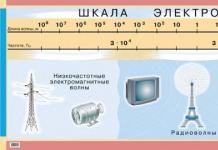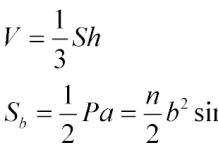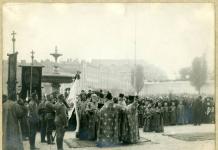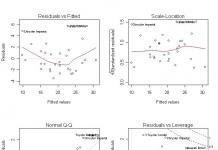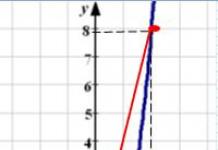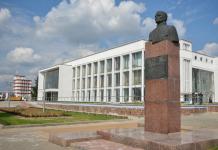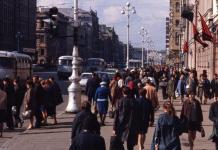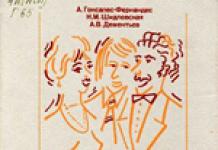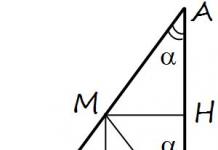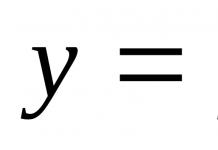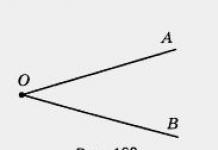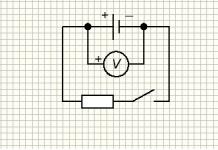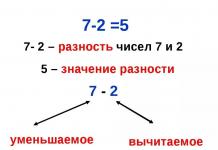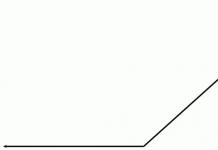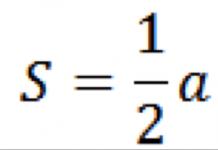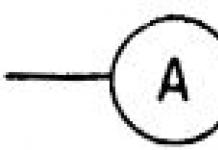The education system in South Korea is similar to ours: 4 years of bachelor's degree, 2 years of master's degree, for doctors training for 6 years. This is where the similarities end, and the bottomless abyss of differences begins. How to enter a university in South Korea and is it worth doing it at all? Let's take a closer look.
South Korean Universities Where You Can Study
The best universities in Korea are designated by the abbreviation SKY. It stands for:
- Seoul National University, or SNU, as its name is often shortened, is the second-largest institution of higher education in Korea. Its campus can accommodate up to 3.5 thousand students. In 2011, it was ranked 42nd in the ranking of higher education institutions in the world. Many famous personalities graduated from SNU: the heads of Samsung and LG corporations, Kim Yongsam, many actors and politicians.
- Korea University. Private university with a focus on the humanities. Gives the most complete and competent knowledge in the field of law and jurisprudence.
- Yonsei University. By right, the best medical university in Korea. Here, training is conducted not only in medical specialties, but also in technical and humanitarian ones. Its alumni are great scholarly minds working all over the world, politicians and actors.
In the aforementioned universities, student exchange programs are widespread, and the luminaries of science and art come to lectures. In addition to SKY, there are also famous universities in Korea:
| Name | Location of the main building | short info |
| Ewha | Seoul | The world's largest women's university. Consists of 11 faculties. The Scranton Faculty conducts training on a special program, fostering leadership qualities. |
| Busan National University | Busan | The first university in Korea, includes 12 colleges and 6 high schools. |
| Kunming | Seoul | Conducts training in 15 specialties. Students undergo internships at the largest universities in the world. Japanese studies is the most powerful department. The Japaneseists of Kunming publish their own magazine. |
| Korea Leading Science and Technology Institute | Daejeon | Leading educational and research university of South Korea. Regularly employs foreign teachers, including Nobel laureates. |
| Foreign languages Hanguk | Seoul | 3 university in the world in terms of the number of languages studied (45). In addition to foreign languages, sociology, geopolitics, economics and other humanitarian disciplines are taught here. |
Benefits of Studying in South Korea
The main advantage is the quality of education. The teaching system here is built differently compared to ours: there are no seminars, and lectures are held in two types. In the first case, the student independently tells the audience the previously prepared material. The teacher corrects, pushes the rest of the students to the discussion. In the second, the teacher asks leading questions to the audience, discusses with it. Usually, after researching an important topic, you are given 20-30 minutes to complete an assignment where you need to apply what you have learned.
High quality education consists not only of the professionalism of teachers, but also of technical equipment. The universities of South Korea are equipped with modern equipment and laboratories, and they regularly conduct additional courses and trainings.
Other benefits of learning here include:
- Low crime rate in the country.
- Low tuition and living costs.
- More than 10 types of grants and scholarships that can significantly reduce costs.
- Possibility to study in English.
- Friendly attitude towards Europeans.
A busy student life is a nice bonus of learning here. A wild mixture of American pop culture and millennia of tradition, the possibilities for fun and relaxation are almost endless. Each university has additional clubs, for example, playing the guitar, rock climbing and others, the monthly subscription fee of which varies within 500 rubles.
Every year, Korean companies participate in exhibitions where they post advertisements for the recruitment of foreign students. There will be no problems with employment after university, even for humanitarian professions.
A small advantage: if you are fired from your job in Korea, then you can switch to a student visa and quietly look for a new one for 6 months. This is important for foreigners applying for a work visa, since it is lost with dismissal.
Difficulties in learning
The main difficulty of studying in Korea is the need to know the language of the country. Of course, institutions in South Korea make programs for foreigners in English, but in order to live and work in this country, you have to learn the language. And of course, Korean is more difficult than English. 
Another difficulty, especially for a Russian person, is the strict rules. Brought a girl to your dorm? Dismissal to both, deportation. Drank alcohol in the dorm? Eviction. There are more than a hundred rules, and it will not be possible to skip couples: for a low average grade, they are expelled and deported to their homeland.
Another difficulty is work restrictions. A student can get a job after 6 months of study, having received official permission from the authorities. Moreover, the number of working hours should not exceed 20 per week. This is compounded by the fact that the employer must sign a separate agreement that states your special situation. During the holidays, it is allowed to work full day.
Many students complain about differences in mentality, especially with regard to food and society. So, in Korea, food is too spicy, to which it is difficult for a European to immediately get used to. In Korea, there are about 4 grades of politeness, and appeals are selected based on the age and social status of the interlocutor. For example, a young person has no right to ask the older generation about anything.
How to apply to universities in South Korea?
Before entering a Korean university, you need to spend a year at a university in your homeland. It is advisable to choose the specialty for which you want to continue your studies abroad: this will slightly simplify the study in another country. After entering the university, the further algorithm looks like this: 
- browse Korean universities for foreigners and choose one of them;
- contact his department for international relations and find out the conditions of admission;
- pass an exam for a certificate of a foreign language;
- collect documents for admission;
- wait for an answer about enrollment;
The enrollment response must be attached to the visa application documents. After obtaining a visa, you can fly to Korea for training.
Documents for admission
The list of documents, especially in private universities, may change, so it is better to clarify it 6-12 months in advance at the department responsible for international relations. You can find his postal address on the university website.
Approximate list of documents:
- resume indicating the place of study;
- copy of passport and international passport;
- a certificate of study at a university, translated into English and certified by a notary;
- an extract about the subjects listened to with the indication of the hours;
- copies of secondary education certificates;
- a letter of motivation explaining your motives for admission.
Language proficiency certificate is a mandatory document. All universities in South Korea require at least IELTS or TOEFL certificates. It's great if you have TOPIK (certificate of knowledge of Korean): when accepting a foreigner, it plays a big role, helps to get around the competition. The presence of this certificate can provide a supplement to the scholarship. 
Cost of education
Even in state universities, education is paid. The first stage of higher education (bachelor's degree) costs 100-300 thousand Russian rubles (for 1 semester). Master's degree - 150-350 thousand. The cost of training depends on the specialty and programs, and not on the prestige of the university. In comparison, a year of study at Seoul National University will be cheaper than at Yeongsei. Most of all, training is in medical faculties and engineering specialties.
Scholarships and grants will help reduce, or even make it free, training. So, for excellent academic success, you can reduce the cost of training by 50-70%.
And yet, to enter or not?
Sounds like a pun, but Korea University is really a great school of life. Having passed it, you can become a worthy, competent and disciplined member of any society. Despite some difficulties, it is interesting to study here. This has both the possibility of free education and the excellent equipment of universities.
Every year, universities in South Korea are gaining more and more popularity in the global educational space. This is especially noticeable in the constantly growing interest of foreign students in studying at Korean universities.
For their part, the South Korean authorities and administrations of higher educational institutions are constantly working towards improving the higher education system, the goal of which is to achieve higher positions in the world rankings of the prestige of universities.
It must be said that South Korea's achievements in all spheres of social and economic life are more than impressive. In the shortest period of time, literally in several decades, the country managed to overcome, if not poverty, then at least a very large lag behind the average level of economic development and become one of several economic leaders in Asia, and in many sectors of the economy and social and social achievements world leaders.
One of these achievements is the entire educational system in general and the higher education system in particular. It is due to the competent state policy in the field of education and upbringing of the younger generation, focused on the prestige of education and the creation of the most favorable conditions for this, that the country managed to make a powerful economic leap.
Education can be attributed to one of the national traditions. Many documents have survived, testifying to the existence of a system of secondary and higher education in the country as early as the XIV century. Students at schools and the National Confucian University had many privileges. They were not drafted into the army, but were aimed at science and politics.
The Confucian University received annually 200 students, who passed a very strict selection. As a result, each student and graduate of the university was a fraction of the elite of society, capable of developing science, moving progress and running the state.
Christian missionaries who appeared on the peninsula in the 19th century played an important role in the development of the educational system of Korea. They brought some Western values to the culture of the eastern country, made education accessible to women.
The first half of the 20th century is very tragic in the history of the country: the occupation by Japan at the beginning of the century, the American occupation in the middle. All this greatly undermined the economy and social spheres of society. Education also fell into decay: the number of schools decreased, only 6-year education became compulsory, there were only 19 universities left, but it was not possible for most young people to go there due to the lack of the necessary level of training.
The South Korean government began to seriously reform the public education system only in the early 60s, and by the end of the 80s, 100 universities were operating in the country. During the same period, the number of students pursuing higher education increased from 100,000 to 1.3 million.
Today, the country occupies the highest lines in world rankings and in terms of the general level of literacy, it is 97%, and in terms of the number of students among the population. Higher education in South Korea, like several centuries ago, is the main condition for individual development and career growth for every young person. And for the state, this is a complete guarantee of a stable continuation of socio-economic growth.
Which universities in the country are the most prestigious
Today, there are 370 universities in the Republic of Korea with different status and ratings, but each of them is trying to provide maximum educational services. Higher education institutions differ in size, specialization, training programs, so it is extremely easy to find the most suitable direction for each applicant.
According to their status, all Korean universities are divided into private and state. The cost of training in private educational institutions is higher than in public ones. Among the private universities, the most prestigious are the universities of Korea, Yonse, Ewha and the University of Science and Technology located in Pohang. Among public universities, it is worth noting the Korea University of Science and Technology, KAIST, as well as Seoul and Busan national universities. 
According to the 2017 ranking of the best universities in the world, South Korea occupies a very worthy place: 2 of its universities entered the top hundred of the best universities in the world - this is Seoul National University and the Korea Institute of Advanced Technologies or KAIST, taking 72nd and 89th places, respectively. And 2 more universities, Pohang University of Science and Technology and Songgyungwan University, entered the second hundred, taking 104 and 137 places, respectively.
How South Korean universities work and what they study
Higher education in the Republic of Korea traditionally includes 3 stages: a bachelor's degree, which involves 4 years of study, a master's degree - 2 years for all specialties and 6 years for medical and doctoral studies.
The top three universities in South Korea include Seoul National University and Korea and Yonseo Universities.
Seoul University is one of the largest in the country in terms of both the number of students enrolled and the number of scientific departments. This university does not have a specific specialization, technical or humanitarian, but unites under its roof a wide variety of faculties and departments, of which there are 16 and 71, respectively.
The university provides an opportunity to get education at all three levels. Providing a high level of education, the best specialists from different countries work at the university, and the educational process is equipped with the most modern technologies. Therefore, whatever direction of study you choose, its quality and your further demand will be guaranteed to be the highest.
Kore University is private and has a humanities specialization. The area of jurisprudence and law is especially appreciated here.
Yongse University is considered the best medical university in South Korea. But along with medical, there are several humanitarian and technical faculties.
Some other educational institutions of the country, which have a narrow and sometimes even unique specialization, deserve attention. For example, Seoul University of Foreign Languages is the third largest in the world in terms of the number of languages studied. In addition to teaching 45 languages, here you can get a serious education in the field of sociology, geopolitics and economics.
Korea's Leading Science and Technology University, located in Dangjeon, is a leading research center and is the leader in the number of visiting Nobel laureate professors.
Ewha Women's University is the world's largest women's university with 11 faculties. One of the faculties, Scranton, operates according to a specially designed program that provides not only knowledge in the specialty, but also develops leadership qualities. For an Eastern society with traditions of gender inequality, such a program in a purely female team is a real breakthrough in consciousness. Wanting to compete with European society in all areas of human activity, Koreans are ready to accept new rules of the game.
Universities in South Korea for foreigners
The South Korean government continues to work to increase the prestige of Korean education in the global professional market. Now government programs and numerous scholarships are aimed at attracting international students. Already today, more than 100,000 foreigners are studying in the country, and according to the academic plan adopted in 2015 for a period of 8 years, by 2023 the number of students from abroad should reach 200,000.
For this, English-language programs and curricula are being developed in the most popular areas of study today. There are already more than 1000 such master's and doctoral programs in the country. In addition to a huge selection and high quality of educational services, foreign students enjoy a lot of all kinds of privileges: they can earn extra money while studying, apply for state and non-state grants and scholarships, which can significantly reduce education fees.
Foreigners pay the same tuition fees as Korean students. The cost of training is quite high.
Depending on the university, a bachelor's degree will cost 100,000-300,000 rubles per semester, and a master's degree will cost 300,000- 350,000 rubles.
But in all educational institutions of the country there is a system of all kinds of bonuses for high academic performance and special achievements in studies.
Thanks to such incentives, the cost of training can be reduced by 50-70%. But the most attractive thing for a foreign student is the fact that after graduation, the South Korean government is actively involved in finding an employer. 
University life is not only, it is also an incomparable variety of recreation and entertainment. Koreans skillfully combine their millennial traditions with American pop culture to make relaxation and fun unique and unforgettable. Each university provides its students with a list of interest studios. These can be societies of travelers, rock climbers, fans of playing various musical instruments, and much more.
Higher education in South Korea today provides an opportunity to get demanded professions, and then get a job in this country.
There are over 380 universities in South Korea. In 2018, Seoul National University and Korea Institute of Advanced Technology (KAIST) entered the top 50, and three other Korean universities entered the top 100 in the QS World University Rankings. 9 South Korean universities entered the top 50 of the QS Rankings Asia 2019.
The most famous universities in South Korea are easy to remember using the symbolic abbreviation "SKY":
- S - Seoul National University - the largest university in the country;
- K - Korea University - a private university with high competition in the humanities and with a huge community of alumni, including many famous personalities;
- Y - Yonsei University is the best medical university in Korea.
All universities in South Korea can be divided into two unequal parts: state universities - about 20%, the rest are private. The education system is in many ways similar to the Western one. There are bachelor's (4 years), master's (2 years), doctoral (3 years). Foundation preparatory programs are in place. Applicants are required to pass the Learning Ability Test (Su-neung, the Korean equivalent of the SAT). Education is possible both in Korean (almost everywhere) and in English: not everywhere, but in a fairly wide range of programs and specializations.
But there are also a number of national characteristics. For example, the school year does not start in September, but in March. The vacation schedule looks different (3 months in winter, 2 in summer). The norms of behavior in Korean universities are quite strict, and this applies not only to the educational process. For violations of the internal regulations of hostels, students can be expelled and deported. Perhaps some restrictions make education in South Korea more difficult for Russians than for local students. For example, a strict ban on alcohol consumption. However, Korean students are satisfied with this, because without higher education in the country it is almost impossible to find a good job. And many foreigners are also willing to follow local rules, especially since they are aimed at improving the effectiveness of training.
But, of course, it is not only strict rules that South Korean universities stimulate their students. All conditions have been created for study here: almost all educational institutions are superbly equipped technically. The most modern multimedia equipment, computer rooms, technological laboratories, fast Internet access anywhere. As well as excellent infrastructure, well-developed catering on campuses and cities, convenient public transport, which saves time and allows you to focus on your studies.
How to apply to universities in South Korea

Unfortunately, for Russian applicants, it will not be possible to enter a university in South Korea immediately after leaving school. The fact is that a certificate of 12-year school education is required. You will have to choose one of two main options:
- Complete a 12-year high school program (IB, A-Levels)
- First, enter a Russian university in a similar specialty, and after the first year transfer to a Korean university.
For admission to English-language programs, knowledge of at least 5.5 points in IELTS is required. It should be borne in mind that universities in South Korea for students who do not know the Korean language most often make their choice in favor of those candidates whose knowledge of English is better (especially with a high competition). Knowledge of Korean, at least at the everyday level, will also be a plus.
In case the training takes place in Korean, a TOPIK language certificate is required. The situation with knowledge of English is similar: it may not be mentioned in the requirements, but English-speaking applicants receive additional benefits.
The exact list of documents required for admission to universities in South Korea may vary slightly, but most often, peeling papers will be required.
For admission to the undergraduate program:
- Copies of passport
- Apostille of the certificate of secondary education with a report card
- Language Proficiency Certificate
For admission to the master's program:
- Copies of passport
- Apostilles of certificates of education already received, with scorecards (as well as indicating the number of hours in each subject)
- Resume from the place of work
- Motivation letter explaining the choice of university and specialty
In some cases, universities, especially private ones, change or supplement the procedure for accepting documents from applicants. Therefore, it is always better to clarify in advance what requirements are relevant.
Cost of Higher Education in South Korea
Higher education prices in South Korea vary in fairly wide ranges:
- $ 6-12 thousand per year of study for a bachelor's degree.
- $ 5-20 thousand in magistracy.
It is possible to reduce tuition fees through various scholarships and grants. In some cases, it is possible to reduce personal expenses by half or even more. There are a large number of opportunities that can be used if two simple conditions are met:
- Excellent academic performance.
- Compliance with the procedures for submitting applications to the relevant funds and organizations.
The prices for studying at universities in Korea do not include the cost of living. This is another position on which a significant difference is possible between universities and even campuses within the same university. Since the cost of housing in Korea is quite significant, and dormitories are not always enough for all students, it is advisable to book accommodation in advance and seek confirmation.
Prospects for higher education in South Korea

It is easy to study well in Korean universities. Tough discipline, a large number of public speeches, projects, workshops, laboratory work - all this sets a high pace. Therefore, graduates of Korean universities are highly regarded both in the domestic market of Korea and in other countries.
For those who have passed the competition for admission, the hardships of lifelong learning, rigorous homework checks and challenging final exams, there are ample opportunities. South Korean universities for international students are often even more effective career stepping stones than for local graduates. Foreigners who have received diplomas here can:
- Stay in South Korea after getting a job. Foreign specialists are a priority, and especially those who graduated from local universities and know the Korean language.
- Open your own business in Korea, or together with Korean partners (they can be found and verified over the years of study).
My adventure began with the decision to conquer a new foreign language. After my trip to the states, I solidified my English very well both in practice and in theory. And while studying at the institute in Khabarovsk (in management), I also studied French (though it faded a little due to non-use). Therefore, after working for a while, I decided that I want to add some oriental language to my piggy bank. After studying them all together and separately, my choice fell on the Korean language. In some ways, it seemed to me easier than the others, also the rapid economic development of South Korea and its close relationship with the Far East of Russia was another plus. And since then, the study of a new language and the search for the best universities and institutes began. Of course, ratings and advice from friends played an important role. It turned out that Yonsei was the first to teach Korean to foreigners, his textbooks are used by many other universities, his students pass TOPIK (Korean language copies) better and better, which is still in first place among all schools in the world teaching Korean KLI Yonsei ...
So the choice was made 🙂 It remains only to enter. It was difficult at first, since the English version of the site had just been launched, and there were no documents, no comments, no explanations to be found. I had to "reinvent the wheel" on my own. Collection of necessary documents, their notarized translation, sending and payment. I remember the excitement of anticipation and of the uncertainty of what lies ahead. But very soon I was informed of my enrollment. And I began to prepare a visa and a list of all the things I needed with me.
First impressions of Yonsei University
Arriving in Korea, I independently traveled from the airport to DMCVille (hostel). I remember how scary it was, because I didn't know Korean yet, and almost everything and everywhere was written in it, I diligently looked for signs in English, but it was in vain. After wandering around the area at night for about 20 minutes, while it was still raining in February, I still found my place, where they were waiting for me at the front desk for registration. Climbing up to the apartment, there I saw the Japanese classmates who had already settled in (by the way, since then I tried not to live with the Japanese, I have never met such pigs in the flesh). Of course, I was pleased with the first housing, 100 square meters, two bathrooms (it was a bathtub), a laundry room, balconies overlooking the mountains and the Han River, bedrooms, dressing rooms, a hall and a kitchen with the latest technology - which I still had to fight to learn this enjoy.
In a month I passed the 1st level, also with honors, I finished the best on the stream (fortunately, I worked in Khabarovsk with a tutor for a month - otherwise I would hardly have succeeded).
I write and think how great it was in the beginning and the volley was more than enough, and strength, and time.
If you speed up the process, then over the next two years I studied (the further, the more time it took), lived, met, even starred in a reality show.
Accommodation in Seoul
I found out later, the thing is pretty expensive in Seoul. I managed to rent a room, and later an apartment near the university. It was much more important to get to the institute quickly than to live better, but further. By the way, during the entire period of study, I did not miss an hour, for which I was rewarded. Koreans always praise goodness and efforts, rather than excuses from many about how difficult it is to get up to 1 pair or how lazy to do homework. I came to study, also for my own money, so I had to give my best, and that's at least.
People in Korea
The more I got to know the Koreans, the more I felt on myself that they often say words to the wind. “Yes, of course, come on” - this phrase does not carry a real agreement to meet again or go to the movies, or even play tennis. They often say "yes" simply as a fact that they have received your information. I felt more comfortable and easier with the Americans / Cami. Our mentality, it seems to me, is very similar, especially if we compare the environment of the Chinese and the Japanese. Russians? Honestly, I tried to avoid them, I came for Korean, not Russian. But, for the most part, it was ours who set up and deceived me. The feeling from them is that we are not studying in Korea, but in a war, where all methods are good, if only our beloved can do better. But even on these inhuman actions we learn to live.
South Korea is an industrial, stable developing state with a strong economy. The country's higher education system occupies one of the leading positions in the rating in the modern world.
The fundamental plus of Korean higher education is the high quality of knowledge. Specialists graduated from local universities are competitive in all countries. The flow of foreigners wishing to enroll in Korean universities is increasing every year.
Education in Korea is conducted in two languages: Korean and English. Admission to the highest level is possible after completing a 12-year secondary education course.
The education offered by Korean institutions has a number of undeniable advantages:
- Professionalism of teachers who have passed a rigorous selection for work;
- High-tech equipment of the educational process;
- A well-developed program of scholarships and grants to support international students;
- Opportunity to attend additional courses, trainings, hobby classes.
Organization of the educational process
Students of Korean universities independently choose the disciplines they study, build the curriculum.
There are no lectures based on the teacher's monologue. Classes are held in the form of seminars in a discussion format. Students learn to reflect, speak in public, stand on their own point of view.
The criterion for the assessment is the student's ability to apply the acquired knowledge in practice.
For a semester, you must receive a certain amount of points for a successful transition to the next stage. Points are awarded for homework and attendance. Exams are taken twice a semester: intermediate and final.

The academic year in Korea starts in March and lasts until February:
- The first semester is from March to August;
- The second semester is from September to February.
From July to August and from December to February, students take vacations.
The school week is five days, Saturday and Sunday are days off.
On a note! Strict discipline is the key to successful learning. Failure to comply with the rules of conduct at the institute, frequent late arrivals and absences from classes negatively affect the reputation, may cause exclusion from the university and even deportation to their homeland.
Foreign students after six months of study in Korea are officially allowed to work. The number of working hours per week during study is no more than 20. During the holidays, the time limit is removed. There are no problems with vacancies, the earnings received helps to compensate for the costs of studying.
Education programs
Universities in South Korea are divided into:
- Vocational colleges;
- Universities.

Duration of training:
- College education - 2-3 years;
- Bachelor's degree - 4 years;
- Master's degree - 2 years;
- Doctorate - no more than 4 years;
- Doctors have been trained for 6 years.
Ownership of Korean higher education institutions:
- National universities are run by the state;
- State universities are subordinate to local governments;
- Private universities are owned by private legal entities.
The Ministry of Education of South Korea puts forward serious requirements that all institutions must meet, regardless of the form of ownership.
Popular specialties in Korea:
- International relationships;
- Economy;
- Jurisprudence;
- Medicine;
- Informatics and IT-technologies;
- Maths;
- Pedagogy.
Conditions for admission
The main prerequisite for admission to an institution in South Korea is a good command of English or Korean.
You can confirm the level of knowledge of the language in 3 ways:
- Having a TOEFL certificate at least C level;

- By providing an IELTC certificate from 5.5 points;

- Having passed at least level 3 the TOPIK Korean language proficiency test.
Russians cannot enter the first year of a Korean higher educational institution after the 9th or 11th grade, as well as Kazakhstanis, Uzbeks and other citizens of the CIS countries. After graduation, it is possible to enroll only in one-year preparatory courses at a Korean institute. At home, you need to study at the institute for at least 1 year in the specialty chosen for mastering in Korea.
Required documents
To enroll in a higher educational institution in South Korea, you should prepare a standard package of documents, which includes:
- Application for admission to a university;
- Autobiography;
- School certificate of complete secondary education;
- Certificate of study at the university;
- Extract from the courses attended, indicating the academic hours;
- A copy of the certificate confirming knowledge of a foreign language;
- Motivation letter;
- A copy of the applicant's passport;
- Consent to the processing of personal data and verification of the information provided.
The provided copies of documents require certification by a notary.
On a note! Depending on the university and specialty, the list of required documents may be replenished. The exact information should be checked with the international department of the selected institution.
In most cases, Korean universities make a decision on admission based on the documents provided. In some educational institutions, interviews or exams are additionally conducted.
student visa
After receiving a response on admission, you should attend to the issue of obtaining a Korean student visa.

The type of visa depends on the study program:
- D2 visa is issued upon admission to full-time education for obtaining a scientific degree, conducting scientific research;
- D4 visa gives you the opportunity to enter the country for language and cultural courses.
Documents for obtaining a Korean student visa in Russia:
- International passport;
- Certificate of admission to a Korean university;
- A document confirming the payment of tuition;
- Agreement on the child's departure abroad from parents or guardians (for minors);
- Sponsorship letter.
Cost of education
A feature of the South Korean education system is the lack of free education. From the preschool level, education in Korea is paid for.
The cost of obtaining higher education does not depend on the prestige and location of the institute, but on the specialty and program. Education in government-funded public universities is cheaper than in private universities.
The approximate cost of bachelor's studies in areas per semester:
- Humanities - from 95 to 460 thousand rubles;
- Natural sciences - from 115 to 550 thousand rubles;
- Engineering sciences - from 115 to 525 thousand rubles;
- Culture and art - from 107 to 540 thousand rubles;
- Medicine - from 270 to 680 thousand rubles.
The cost of master's programs may exceed the indicated amounts by 1.5-2 times.
On a note! Exact information about how much it costs to study for the selected program can be obtained by contacting the university directly.

To the amount of training, you should add the costs of:
- Housing;
- Nutrition;
- Medical insurance.
Scholarships and grants for international students
The South Korean government provides material support to foreign students, including Russians, by distributing grants for studies.
Government programs that help to significantly reduce costs:
- Government scholarship- 800-900 thousand won (45-50 thousand rubles) are paid monthly for accommodation, flights, Korean language courses, textbooks, medical insurance are paid;
- Excellent Achievement Exchange Students Scholarship- The amount of monthly payments is 500 thousand won (28 thousand rubles) for accommodation, travel and medical insurance are compensated;
- International Student Support Program students at their own expense - compensation for living expenses in the amount of 500 thousand won (28 thousand rubles) monthly.
Applicants for government scholarships undergo a rigorous competitive selection process and are required to submit documents according to the required list.
Successful students can look forward to scholarships from universities. The amount of the scholarship depends on academic performance, ranging from 30 to 100%. Students who have excelled in their studies have the chance to study for free: the university scholarship will fully cover all costs.
Exchange studies
Students of universities that have partnerships with Korean institutions have the opportunity to travel to Korea for exchange. To participate in the exchange, high academic performance and a conversational level of proficiency in a foreign language are required.
Accommodation and meals for students
After enrolling in the University of South Korea, you need to resolve the issue of accommodation for the duration of your studies.

Options where international students can live:
- Student hostel- rooms are designed for 1-4 people, there is no kitchen, meals are provided in the university canteen, the cost of living reaches 85 thousand rubles. per semester;
- Boarding house- it is possible to settle in a 1-bed or 2-bed room, two meals a day (breakfast, dinner) are provided at the appointed time, the cost is about 30 thousand rubles. per month;
- Rented room, apartment- the possibility of a separate residence, in which the possibility of self-catering is formed, the cost depends on the comfort of the chosen housing.
Top universities in the country
Three of the best universities in the country united by the abbreviation SKY:
- Seoul National University- the first university in Korea, included in the 50 strongest universities in the world, is the best technical university in the country;
- Korea University- a private university with an emphasis on humanitarian faculties, offering the best legal education in South Korea;
- Yonsei University- an elite university, the main specialization of which is medicine.



